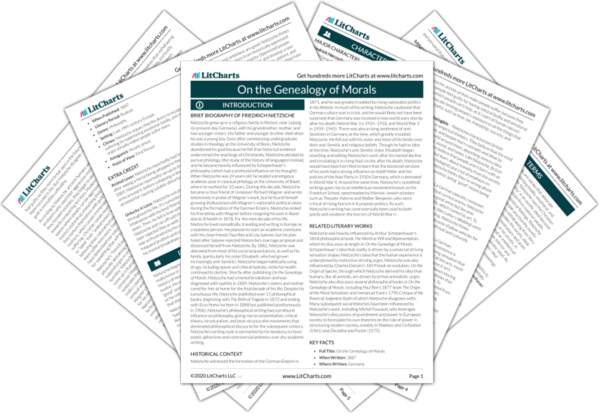Many of Nietzsche’s contemporaries think that societies get more progressive as they modernize, because they improve upon the past. Nietzsche disagrees; when different people seize power (for example, when priests take charge instead of warriors), new customs are put in place based on what behavior the rulers want to encourage in the population. To Nietzsche, a society is only better if the people in power structure the society to encourage flourishing and joy. He thinks that modern European society does the opposite: it denies people the right to be aggressive. Consequently, repressed aggression resurfaces in ways that actually make people suffer
more. For example, when a person can’t release their natural aggression, they might subconsciously redirect it toward prejudice and hate, and they can misuse the justice system to persecute the people they are prejudiced against.
